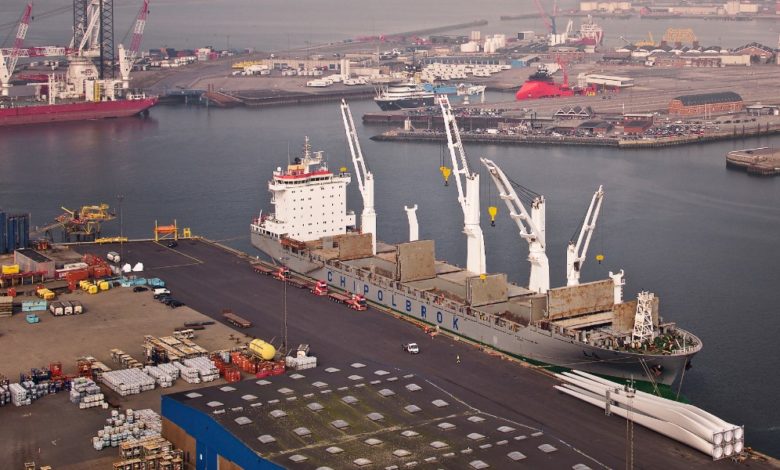Carbon neutral project kicks off at Esbjerg

Denmark’s Port of Esbjerg has announced a joint co-innovation project with digital technology company Atos to create a carbon neutral harbour and a dedicated decarbonisation solution for their customers.
Esbjerg is Denmark’s largest port on the North Sea, being a key hub for offshore wind power developments, the oil and gas sector, plus roro traffic.
The new trimodal project, which was facilitated by the national investment agency Invest in Denmark, aims to significantly reduce carbon emissions in route networks.
By calculating carbon footprints according to different transport modes and routes, the harbour aims to be an effective central logistics location, where sea, rail and truck companies will have the opportunity to be proactive in their decarbonisation strategies. Transport operators will be able to choose the mode and the route with the lowest carbon footprint and, at the same time, leveraging cost-savings thanks to cooperation with the port.
Dennis Jul Pedersen, CEO of the Port of Esbjerg, said: “Having a weighted approach to the various transport modes and route possibilities is an important challenge in reducing the carbon footprint whilst at the same time considering hinterland, port and sea in the planning. The trimodal solution in partnership with Atos will be instrumental in achieving carbon neutrality for the Port of Esbjerg and with an integrated system across the available transport networks in Europe it will also grant better transparency on transport modes and save costs.”
Claus Larsen, head of Atos in Denmark, added: “With Denmark set to reduce emissions to 70% of its 1990 carbon levels by 2030, we are proud to be working in collaboration with the Port of Esbjerg to build a sustainable future for the country. We focus on carbon reduction to improve efficiencies, reduce costs and drive innovation to achieve success.”
Other recently announced projects at the Port of Esbjerg include the development by Honeywell of a carbon and energy management system – and a new shore-to-ship power system.
